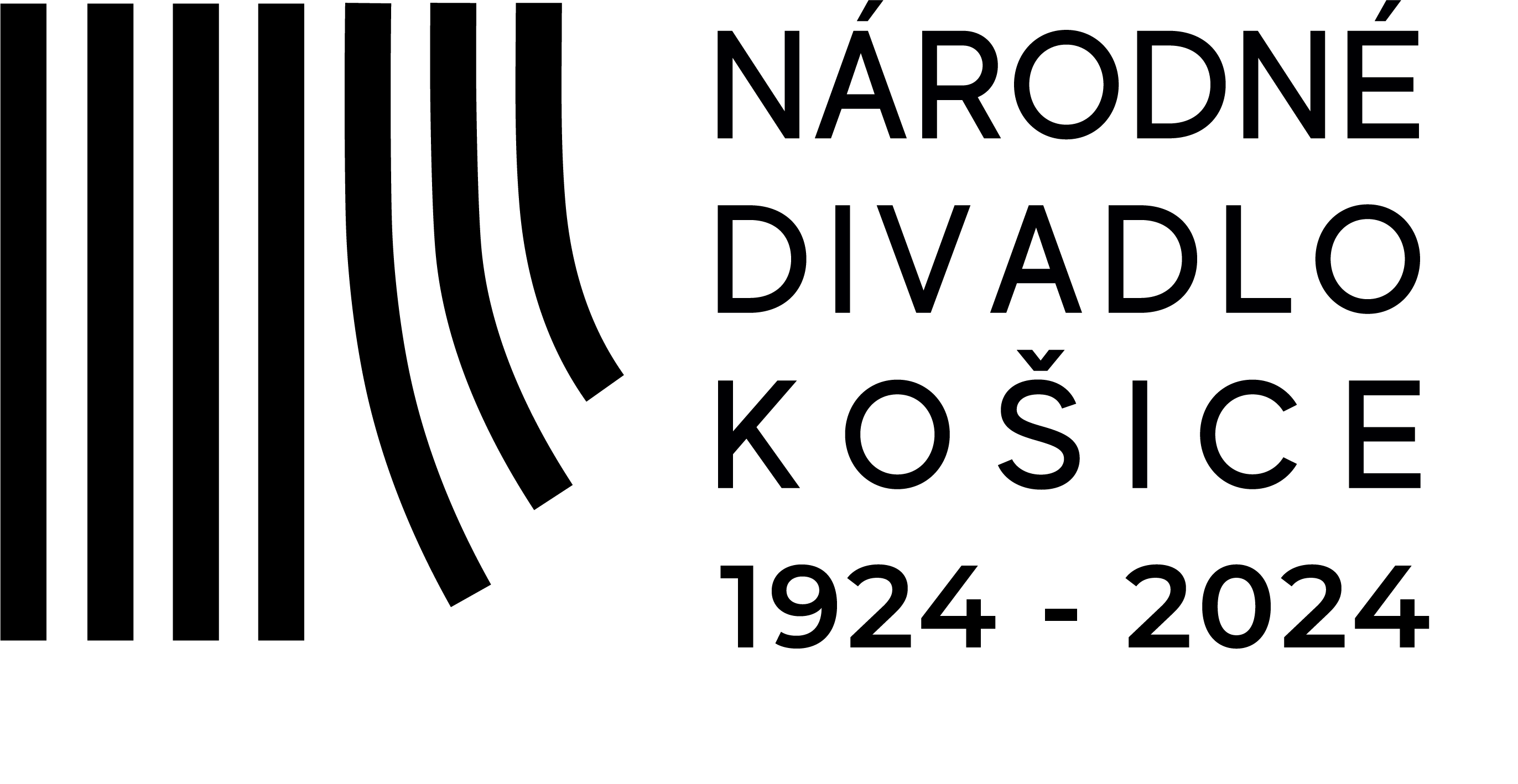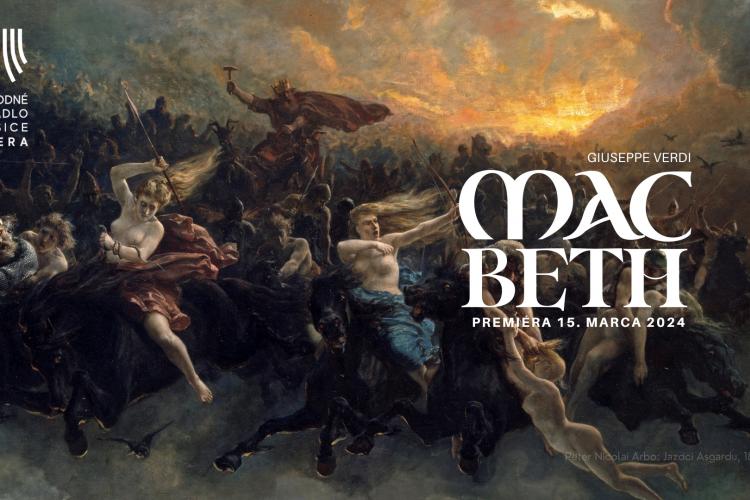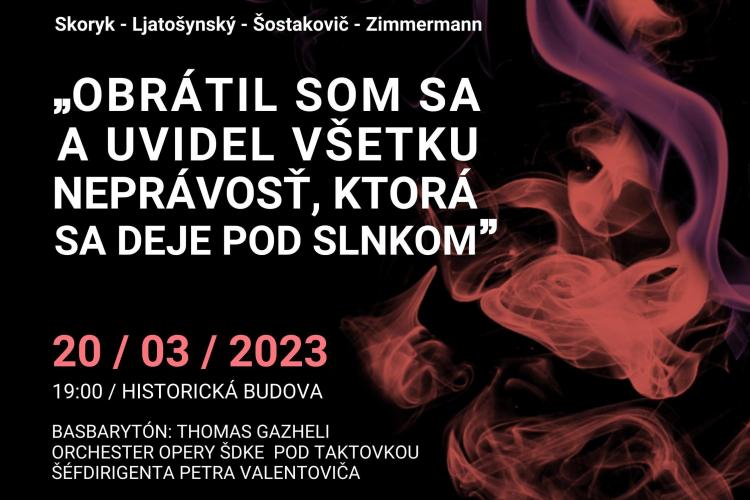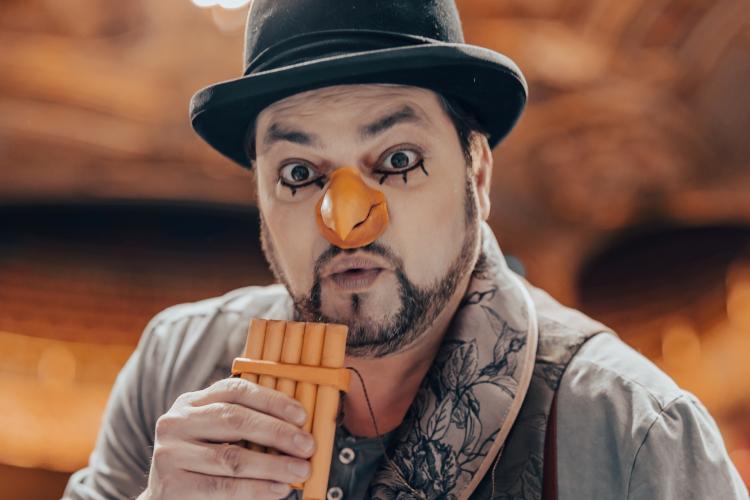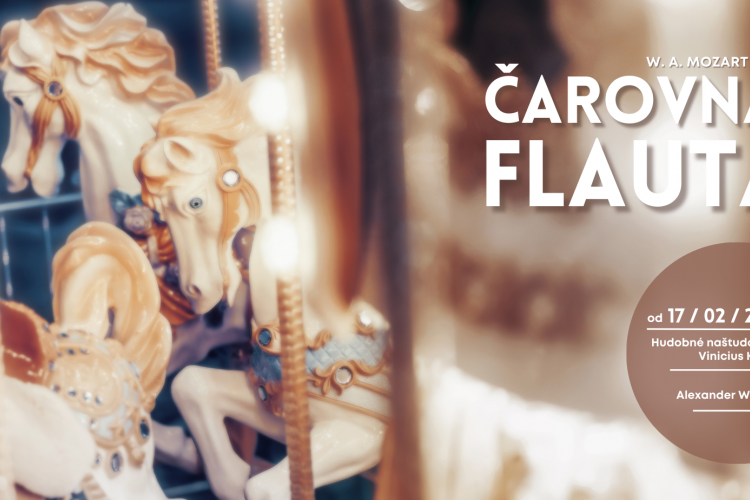“I am at the age when I’ll do the role of Mother in operetta Duchess of Chicago. Titusz Tóbisz’s mother. Actually, I’ve recently portrayed a lover couple with him,” laughs Táňa Paľovčíková Paládiová, soloist of the opera ensemble of the State Theatre Košice. Few weeks ago, she celebrated two jubilees. In late April it’s been 30 years since she first time appeared as soloist in a minor role in Košice Opera. And earlier this year, she also celebrated her birthday which is often described as a turning point in one’s life.
Time flies very quickly. What did you have on your mind in late April, thirty years after you first time stood on stage of the State Theatre Košice. Then you were a student of Conservatory who alternated a rustic girl Gianetta in Donizetti’s The Elixir of Love?
- remember it as if it was yesterday. You graduate from the Conservatory, you think of yourself that you are a great soloist, National Artist... And then it comes, and it knocks you down. You find out you are not ready. I had no double-casting, I did the role alone. It was an advantage and I constantly rehearsed. It was a minor role, but a great experience for me. I can still remember that I was supposed to seduce Nemorino, and everybody was laughing as I didn’t know how. Director constantly repeated to me blow your chest, you have it. Everybody was laughing. My beginnings were, really, harsh. But my elder colleagues helped me a lot, some of them unfortunately died. They always noted me of details. You just can’t stand like this, can’t do it like this, try it this way. It was interesting to me. I was clumsy, like an elephant in porcelain.
Your career jubilee is followed by your life jubilee. This jubilee is often described as a turning point in one’s life. Do you feel the same? What is your life story?
My life has been long enough. That time passed so quickly. Many things happened in my life. Both, good ones and bad ones, that’s life. But in terms of theatre, those 30 years in the theatre were amazing, beautiful, and creative. I managed to do such characters which some never have chance to do, also thanks to the fact that I have a permanent contract in Košice. Some must travel to do their characters, and some never have chance to do them. I was lucky I did a wide scope of characters. I did a lot of operettas and minor roles until I got the first big role Violetta from La Traviata. Only when I sang Rosalinda in The Bat (premiered in 1999), they realised in the theatre 'O.K., Paľovčíková can do coloraturas, Paľovčíková can sing' (laughing). And I first time sang Violetta during the tour in Hlohovec and then I did that famous production for another fifteen years.
Almost sixty characters...
Gosh...
... in the most famous operettas and operas in one theatre, that is a respectable number. It is a cliché, but which were your top characters?
For sure Violetta, I sang it for most of the time. Rusalka and Amelia from A Masked Ball are my favourites, for which I happened to be awarded. And one more Adriana Lecouvreur, which we unfortunately played only a few times. And my top character, in which I always admired Eliška Pappová, is Abigail from Nabucco. In one older production of this opera, I sang minor role Anna and I always wished for Eliška. I thought for myself: will I ever sing such a beautiful character? And, eventually, it really happened. It’s been ten years now that I sing Abigail.
Present-day opera is about singing just as acting. Demands placed on singers are still higher. Could you describe your preparations for a new role?
It differs. Always when I got a new role, historical or other, so I already have any idea. But then director steps in and, totally, destroys your idea. Sometimes it is, really, difficult. But I have never had such a bad experience that I would have to go totally against my opinion on the character. Directors were always able to find a compromise. Their core ideas remained, but they still managed to accept my emotions and means of expressions. Each singer is different. Someone does it this way, someone other way. And that is why during my preparation I read about that historical person, if it is a real historical figure, or I read about history of that opera work. Sometimes I look at other productions, but I don’t really like it because then you get a different perspective on the piece than the director’s one. Over the years I’ve learnt to respect director.
When we speak about directors, who stuck in your mind?
For sure Božena Hanáková. Though she was not originally a director, she was my professor, she taught me a lot. She was my first director, she taught me the basics. I still benefit from her. From that old school I have gained from older generation of my colleagues such as Július Regec, Gejza Spišák, Vierka Hronská... I get inspired by this generation. But, in fact, acting in opera today is a bit different compared to what it once was. It is strongly influenced by film and television. It is no more about standing on stage, throwing hands and doing big gestures. Acting today brings more detailed emotions. E. g. in Rusalka, my colleagues often asked me - why am I crying. But I am not crying. But you’re weeping so much that we thought anything happened. And this is credible. I am not crying but I can pretend it so that others think that I am really crying. Or in Comedians, there is scene in which Canio throws me on the floor. My colleagues always remained speechless, conductor Igor Dohovič was the only one smiling. He knew what is going next. Several times, some singers told me they wanted to run to me and help me because they thought he really did it too hard. That’s the skill. We have learnt that. Partner’s gesture must look so that he really threw me on the floor, and I must be able to fall on the ground in a way which is believable. Singers gasped. Love scene for example can’t be done in a way that singers sing cheek to cheek, as if they were doing a photo, or standing on the opposite sides of the stage and singing I love you! It is out. Audience must believe that I am in love with him.
You mentioned that your long-term permanent contract brought you such characters many of your colleagues never have chance to sing. Yet is there any character you would like to do?
I did it, I did Tosca. I sang it very early, for sure, I would like to do it once again. I would forget that I have ever done it. I have no more favourite roles. You may expect some characters, but then dramaturgical plan may bring something else. What can you do? I am thankful for each single role I ever had in the theatre.
The last year was very difficult for everyone. What was it like – have no evening performances, regular rehearsals, meetings with colleagues?
For a moment, I was happy – great we have vacations. Our schedule was hectic, one day we did Nabucco and the other The Riviera Girl, or we did The Bat three days in a row. I said to myself – a month of vacation is OK, a month then turned into a year. And it is very difficult. For us singers, regular singing and performing on stage is like regular training for sportsmen. After a year, we are now gradually getting back in shape. It is as if you break your leg and then it takes some time to walk normally again.
Recently you have promoted, along with Jaro Dvorský and Miška Várady, on-line streaming of The Bat. You did that promo from the kitchen. What’s new in your kitchen? Will you surprise your colleagues with a cake or some other specialty? Or somebody else could do the cake this time?
It will probably end up as usually. It also happened to a friend of mine. Us who bake cakes, we do our birthday cakes ourselves. And this will be the case on my birthday probably. Of course, I’ll bring something for my colleagues.
You got your cooking inspiration from your vacations abroad. Which cuisine is may be closest to you? Is it still truth that you cook meat, but you don’t eat it?
I will always remain faithful to Italian cuisine though I also like Indian and Chinese cuisine. Though I can prepare only two or three dishes. It is a bit more challenging to get all the ingredients. Italian cuisine is totally easy and still so delicious. And it is easy to get the ingredients.
- my vegetarianism. In fact, I am currently rather a half-vegetarian. I eat meat, but not so often. But my son continues the tradition, his girlfriend is vegetarian, rather she doesn’t like meat. So, we prepare vegetarian dishes quite often. For example, I had a vegetarian ʿhamburgerʿ today.
A year ago, you were supposed to be a guest star at Jaro Dvorský’s jubilee concert which was marred by the pandemic. Now, the concert is planned for May, 28th and you will celebrate your jubilees together. What can we look forward to?
It will remain as it was originally planned a year ago. Just the two of us will perform and it will be done along with the orchestra. It was originally meant as a Christmas concert, so we a bit changed the program. We will present well known arias from operas, operettas, Neapolitan songs, we have learnt. It will be varied and interesting.
Theatre life slowly but surely gets back to its normal though it may take some time till the auditorium will be full again. After a long break, will it be difficult to get back to your classic routine?
It will not be difficult, it’s just our psyche. In September we performed the first time after a half-year, we did two shows. For sure, we are slightly nervous, whether our vocal cords are sufficiently prepared. If we succeeded in September, we’ll succeed again.
Just with little kids you realise approaching age. Your son and daughter, they both are adult now. Did any of them follow your artistic career?
No, none of them. I still have them both at home. They both studied English language. Of course, they did school of music, they have basics in music, but they did not specially focus on music. I have never forced them to do so.
We often discuss opera and theatre during our family meetings. My sister Zuzana sings in opera choir and some solo parts. Others, do they meddle in when you’re debating work?
Not really. In a way, we speak about theatre when we are alone, just the two of us. When we are together, the whole family we speak about different things. We somehow do not bring these things into family.
Your husband, does he often go to the theatre? Or is it still truth that he only comes for the premiere, as he becomes critical during his second visit?
Yes, it is still like this. For example, when he came the second time to see an operetta, so he said you did a mistake here, somebody changed text and said a different word. Rather my kids, my daughter went to see the performances several times. My husband remains a premiere fun.
When you were an elementary school student and you applied for Conservatorium, did you plan any alternative school? If you were not an opera singer, what would you be?
I am in the age when I can say it openly. At the elementary school I was an average student, so I would choose a vocational school, I would study to become a goldsmith. You need some manual skills. And it ended up that I am a singer. I did school entry exams at Conservatory, and I passed. I will not be a goldsmith.
You and other soloists remained loyal to Košice. Isn’t that a rule that beginning singers dream of big world? Haven’t you dream of engagements abroad, behind hills?
Sure, I dreamed of other engagements. When I was younger, I wanted to conquer the world. But eventually I always got some nice character in the theatre, and I said to myself – is it necessary to go elsewhere, when I have such a nice opportunity here. And so, my ideas to travel for work abroad somehow slowly disappeared. I also performed in Bratislava, and I said to myself that only once. It is very demanding, and I admire all those who do that. We did the premiere on the last day of the year, and yet before Christmas I was so exhausted that I asked myself: why have I decided to do something like that? I tried it and I had enough and then I never wanted to do that.
Previously you worked as a pedagogue at the Conservatory, and you help your colleagues in the theatre during their voice preparations. What must a singer do in order to maintain his/her voice quality as long as possible? And what is most important in that?
One must have good singing basics. I have received that from Mrs. Somorjaiová. I used that voice technique for all those years. Of course, I have learnt many things much later, I understood many things later and especially when I did a more challenging part. Our singing comes from our emotions. Pedagogue can only tell you breath in this or that way, do it like this and so, but the manner you do it is different with everyone. Each has different anatomy and must find his/her own way how to breath and sing.
In addition to operas, your fans love you in your operetta characters as well. The theatre currently prepares another interesting operetta piece and that is Duchess of Chicago by Emmerich Kálmán...
It will be different for me in that I am not doing the leading role, instead I do role of Mother. Titusz Tóbisz’s mother. I previously did several love couples with him. I came to the age when I do mothers. It is a very nice character, more prosaic, less singing. One must try something like that as well. I am very happy. The first time I saw this operetta in Hungarian language, I did not understand a word. But already then, I said I want to do this role.
And, finally, I would like to ask: what did you wish for when blowing out your birthday candles? And what do you wish for your funs?
Most of all I wish for health. That is the only thing you cannot buy, and these days remind us of that a lot. For sure, I wish for plenty of beautiful music to make my funs happy. They are already coming and asking me: when will we be able to go to the theatre, when shall we start acting again? May they take pleasure in this beautiful music as well. And I wish to hear again that they got chills, for example the mum of our ballet soloist, Silvia Borsetti, who teaches us Italian is so nice – she calls me a nightingale. That’s the greatest applause to me, my little pleasure.
(The interview is also issued in the weekly Košický večer of 14 May 2021)
